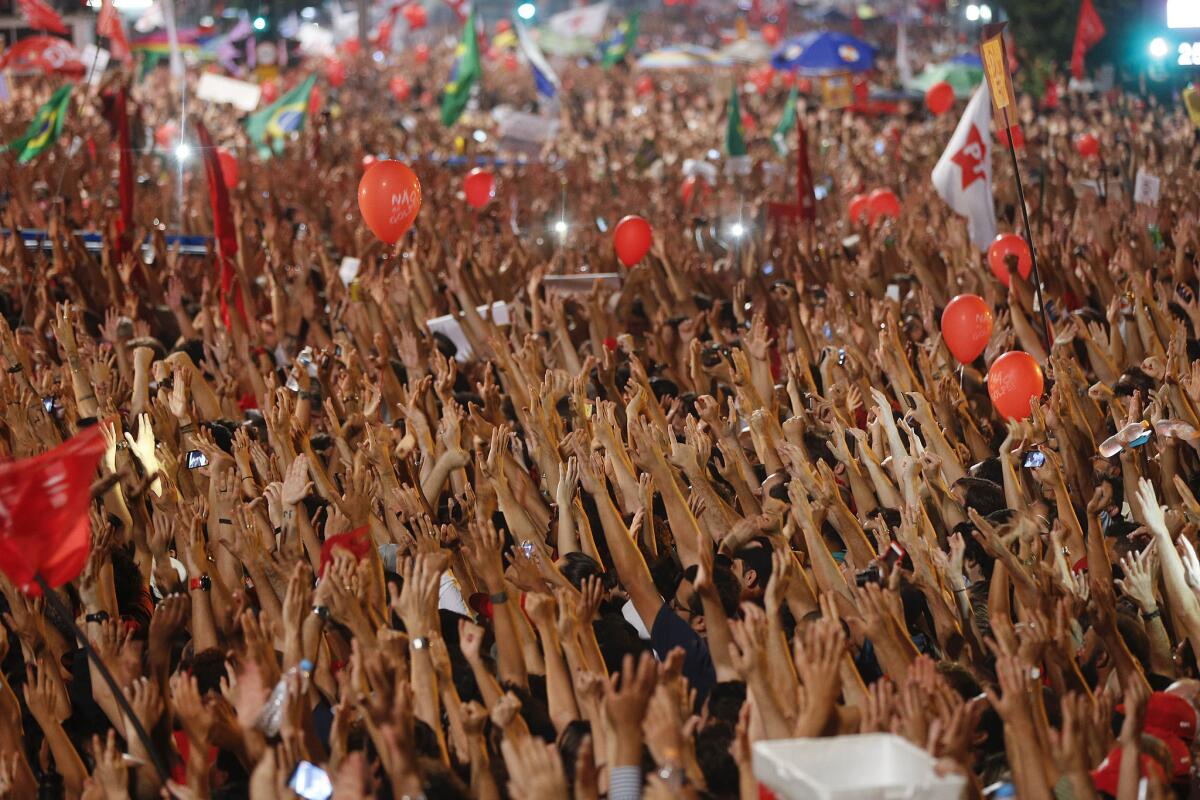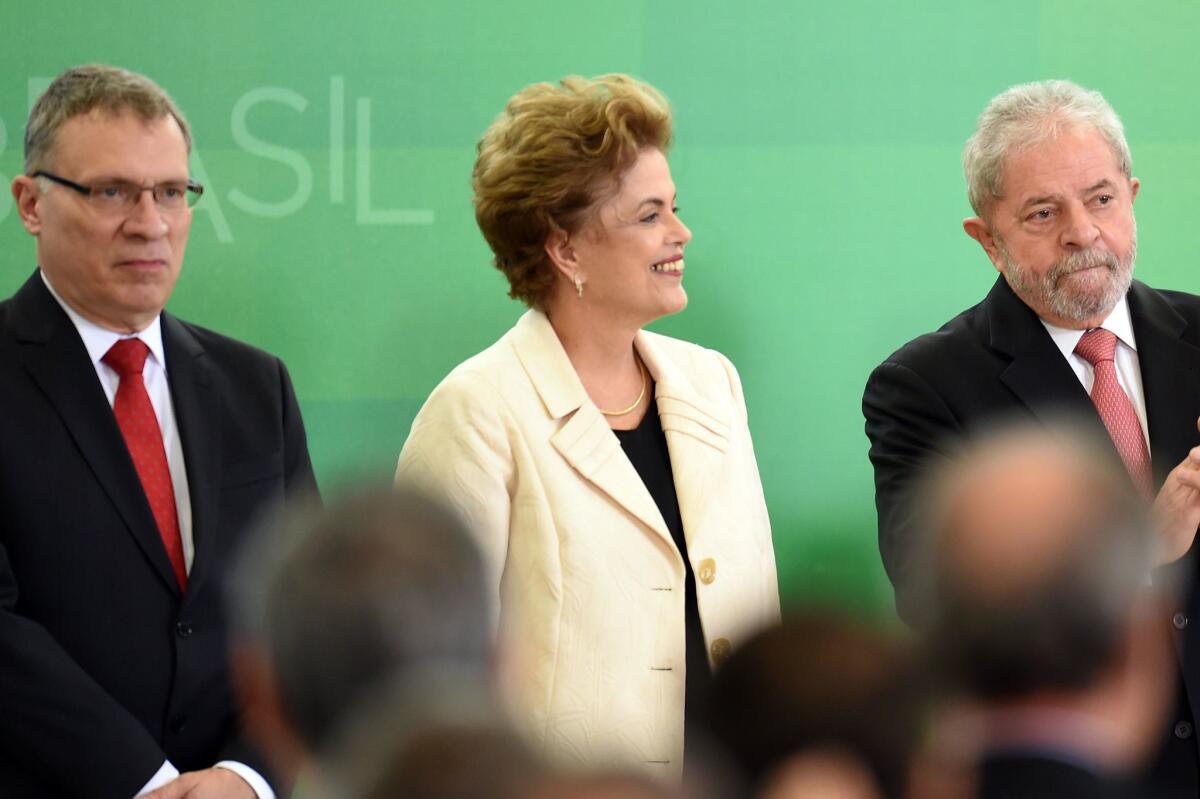Brazil’s government has imploded. Here’s what could happen next

On Friday, thousands in Sao Paulo, Brazil, attended a rally in support of Brazil’s President Dilma Rousseff and former President Luiz Inacio Lula da Silva.
- Share via
The events of the past week have left Brazil without a stable government. Massive protests have demanded that President Dilma Rousseff be removed from office for corruption, and she has warned of the threat of a coup. Meanwhile, she announced that she was appointing former President Luiz Inácio “Lula” da Silva as her chief of staff, even as investigators zero in on allegations of corruption against him. Congress is beginning deliberations on Rousseff's impeachment.
The situation is fluid and unpredictable, but constitutional scholars and analysts believe there are at least five ways a new government can be re-formed.
- Rousseff and Lula can rebuild a coalition and beat impeachment.
- Congress can vote to impeach Rousseff.
- Electoral authorities can annul Rousseff's 2014 election, leading to a new vote.
- Rousseff can resign under pressure.
- Investigators could implicate Rousseff in a serious crime.
Rousseff and Lula can rebuild a coalition and beat impeachment. The task seems Herculean at the moment, but the ruling Workers' Party seems to be betting the farm on the possibility. The plan would rely upon Lula being allowed to enter government and then employing his considerable political skills to win back support in Congress and among the population to save the government.

If legislators remove her, Vice-President Michel Temer of the centrist but controversial Brazilian Democratic Movement Party (PMDB) would take over. Temer, who fell out publicly with Rousseff as the crisis expanded, could face weak support in Congress or among the public.
If the Superior Electoral Court rules that the Rousseff-Temer ticket received illicit funding, then no political process or congressional voting is needed for her removal. If this happens before the end of the year, new elections would be called. This outcome is appealing to some because it allows for new leadership chosen by voters, but impeachment could take place first. If it were to happen after Temer takes office, then he also would be removed.
See the most-read stories this hour >>
Many think this is not her style. The former guerrilla leader endured torture under a military dictatorship, and she has never been personally implicated in corruption and strongly denies wrongdoing. But if she were to step aside, Temer would take over. If she and Temer were to resign together in 2016 – considered an even more remote possibility – new elections would be called.
If the investigation into corruption, known as the “Car Wash” scandal, were to uncover evidence of the president's direct participation, the Supreme Court and Congress could remove her while she is being investigated. She has not been linked in any direct way after nearly two years of investigation.
Brazil's constitution was only ratified in 1988, and the explosive events of the past few weeks have led to intense debate about the procedures that should be employed to deal with this political crisis. It's entirely possible that things will change again soon or that more options may present themselves.
See more of our top stories on Facebook >>
This article relied on interviews with Ana Paula de Barcellos, professor of constitutional law at the Rio de Janeiro State University, and Peter Hakim, president emeritus at the Inter-American Dialogue, a Washington think tank that focuses on relations with Latin America.
Bevins is a special correspondent.
MORE WORLD NEWS
What we know so far about the fugitive Paris terror suspects
Obama declares a 'new day' in relations between the U.S. and Cuba
What do residents of Trump's ancestral village in Germany think of him? Not so nice
Sign up for Essential California
The most important California stories and recommendations in your inbox every morning.
You may occasionally receive promotional content from the Los Angeles Times.







